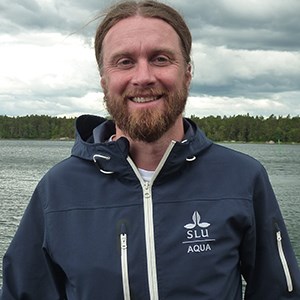Contact
njfak@slu.se, +46 18 67 10 00

SLU's expertise - more needed than ever?
After a hopefully relaxing and nice summer rounded off with alarmingly high temperatures both in the air and in the election campaign, it is now once again time to get back to everyday life at work.
What lies ahead of us besides fun and challenging tasks at work, are uncertainties in the political direction of a new government and the issues that will be prioritized. I hope that SLU's role and importance in the local, national and global work for sustainability will still be recognized in times when our expertise and competence are perhaps more relevant and needed than ever.
This summer I participated as SLU's representative in the Swedish delegation at UN's High-Level Political Forum in New York. The forum serves as UN’s platform for sustainability and aims at reviewing the progress and achievements of Agenda 2030. Among other things, sustainability goals 14 and 15 were discussed during the conference. SLU has extensive and decisive knowledge for the implementation of these goals by for example contributing data and expertise to the Swedish reporting of the Agenda.
The Forum was fantastic in gathering so many countries and committed people in one place at one time, but the reporting on the progress towards global sustainability was anything but positive. Goal fulfillment is moving too slow, and in many cases in the opposite direction to what is desired. Mainly as a result of the pandemic and Russia's invasion of Ukraine, but also due to a lack of political will and societal commitment.
We now must take action to implement the extensive societal transformation needed to reach the ambitious goals of Agenda 2030. The perspectives of young and vulnerable people are essential for the transformation, as is making use of local knowledge from, among others, indigenous people. Economic growth also needs to be decoupled from negative impacts on biodiversity. We are at a stage in time where knowledge for reaching the goals is available. And now, perhaps more than ever before, political will and societal commitment are essential to move from words to action.
During “Miljöövervakningsdagarna” in Umeå some weeks ago, the key role of SLU’s operation focusing on environmental monitoring and assessment for the Swedish environmental and sustainability work was clearly evident. Several of our experts on monitoring and assessment gave inspiring presentations on a range of topics as environmental monitoring, data storage and analysis, and related research projects. We also launched a portal where a large part of SLU's open environmental analysis data is collected.
Before summer, the committee for environmental monitoring and assessment at the NJ-faculty decided on extending the assignments for several of the coordinators for our seven environmental monitoring and assessment programs. Three new persons were additionally appointed assignments in the coordinator organization. Martyn Futter and Magnus Simonson is the new coordinator and deputy coordinator for the Acidification program, and Stefan Larsson is the new deputy coordinator for the Coastal and sea areas program. Warm welcome!
We have recently also opened a call for development funds for environmental monitoring and assessment at SLU, and are looking forward for many good applications from all of you. During fall, the coordinators for our environmental monitoring and assessment programs continue their work on mapping how the activities in the programs connect to the global sustainability goals of Agenda 2030.
Despite the somewhat uncertain immediate future, I hope that we can continue to develop our work and stay up-to-date by asking the important questions and providing the scientifically underpinned and relevant answers. Wishing you all a good fall!
/Jens Olsson, Vice Dean responsible for environmental monitoring and assessment
njfak@slu.se, +46 18 67 10 00